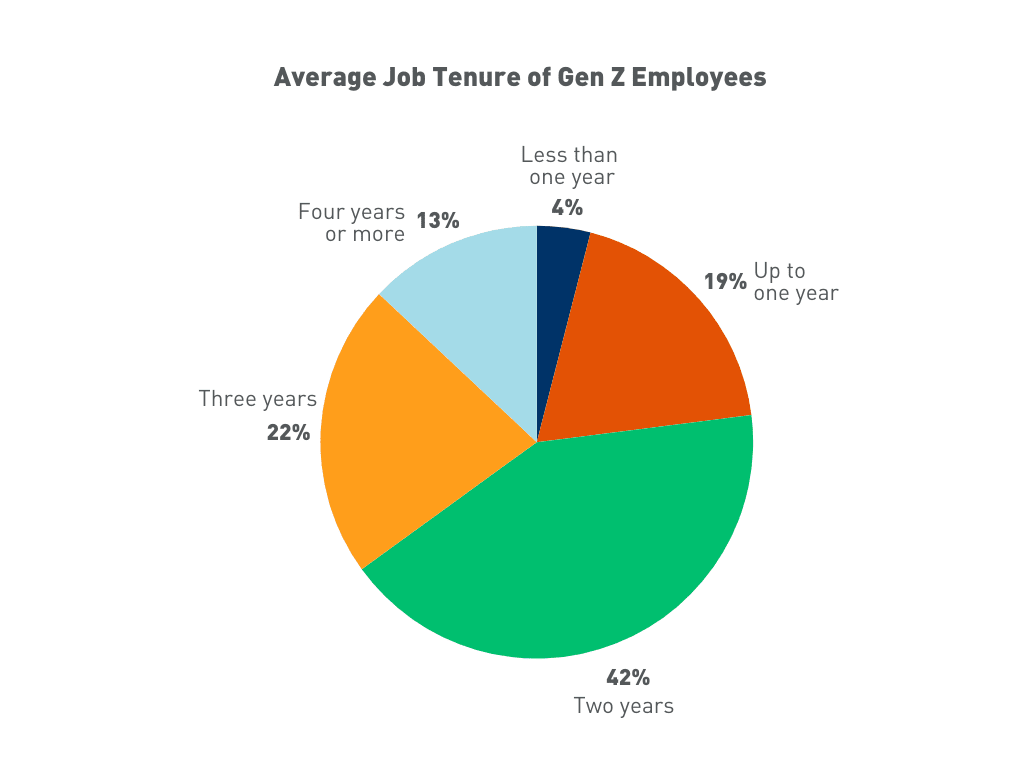Bridging the Gap: Strategies for Managing Gen Z in Today’s Workforce

Gen Z is no longer the workforce of the future—they’re the workforce of today, making up nearly 30% of workers globally, according to the World Economic Forum. As their presence grows, it’s essential for mobility managers and organizational leaders to adapt. While some may view Gen Z as challenging to manage, these perceptions often miss the bigger picture. This generation values flexibility, transparency and sustainability—and employers that understand and respond to these priorities will be well-positioned to attract and retain top talent. In this blog, we’ll explore practical ways to align workplace policies and mobility programs with Gen Z’s expectations to create an environment where both employees and organizations thrive.
Key Focus Areas for Engaging Gen Z in the Workforce
- Understanding What Matters Most to Gen Z: Recognizing workforce demographics is the first step in engaging Gen Z employees. Their career aspirations, values, and expectations can be used to shape mobility programs and workplace policies. Research from Jabra reveals that Gen Z prioritizes flexibility over salary, with flexible work arrangements being three times more important than pay. To attract and retain this generation, companies should emphasize sustainability initiatives, technology integration and adaptable career paths.
- Fostering Open Communication: Clear and transparent communication is essential to bridging generational gaps, particularly during career transitions or relocations. Regular check-ins and feedback sessions help set expectations, provide reassurance and enhance engagement. Actively listening to Gen Z employees and incorporating their feedback fosters a culture where they feel valued—regardless of whether they work in-office, remotely or on assignment.
- Supporting Flexibility and Career Growth: Gen Z values career mobility—not just geographically but in terms of skill development and new challenges. According to ResumeLab, 83% of Gen Z workers consider themselves job hoppers, seeing frequent movement as a way to diversify their skill sets and find work environments that align with their values. Given this, companies should explore ways to offer short-term projects, rotational programs, and remote work opportunities that provide variety while maintaining engagement. Aligning mobility policies with these preferences can lead to better retention and a more dynamic workforce.

- Leveraging Technology for Collaboration: Technology is second nature to Gen Z, and organizations that integrate digital tools effectively can create a more engaging and productive workplace. Implementing collaboration platforms, AI-driven learning opportunities, and digital self-service tools can enhance productivity while fostering teamwork and connection. Investing in interactive, tech-driven training solutions can also keep Gen Z employees engaged while equipping them with the skills needed for advancement.
- Aligning with Gen Z’s Values: Beyond career growth, Gen Z prioritizes inclusivity and sustainability. Deloitte’s 2024 Gen Z and Millennial Report found that 62% of Gen Zs and 59% of Millennials express anxiety about climate change. Organizations that integrate green travel alternatives, carbon offset programs, and hybrid work models into their mobility programs will better align with Gen Z’s expectations. Likewise, fostering a culture that embraces diversity and social impact strengthens their connection to the organization.
Creating a Gen Z-Friendly Mobility Program
To build a mobility strategy that resonates with Gen Z, consider these key approaches:
- Flexible Assignments – Offer hybrid, short-term, and virtual assignments that support both career growth and work-life balance.
- Customizable Mobility Benefits – Provide self-service digital tools that allow Gen Z employees to access personalized relocation and career guidance.
- Mentorship and Support – Pair employees with mentors to facilitate career development and personal support during transitions.
- Sustainable Mobility Solutions – Align policies with environmental values through eco-friendly relocation options and sustainable workplace practices.
Moving Forward
Managing Gen Z effectively requires adaptability, innovation and alignment with their expectations for flexibility, sustainability and career development. By evolving workplace policies and mobility programs to meet these needs, companies can enhance engagement, improve retention and cultivate a globally connected workforce.
This isn’t just about accommodating a new generation—it’s about embracing fresh perspectives that can drive your organization forward.
Need to adapt your mobility strategy for Gen Z? Connect with our Mobility Strategy team to tailor a solution that fits your workforce and business goals.